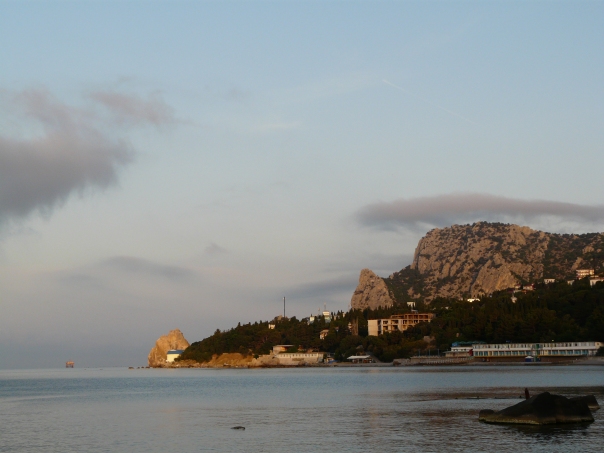This is the farewell letter of genius Colombian writer Gabriel García Márquez. If you want to read it in English, follow this link. Below is the Spanish original.
“Si por un instante Dios se olvidara de que soy una marioneta de trapo y me regalara un trozo de vida, posiblemente no diría todo lo que pienso, pero en definitiva pensaría todo lo que digo.
Daría valor a las cosas, no por lo que valen, sino por lo que significan.
Dormiría poco, soñaría más, entiendo que por cada minuto que cerramos los ojos, perdemos sesenta segundos de luz. Andaría cuando los demás se detienen, despertaría cuando los demás duermen. Escucharía cuando los demás hablan y cómo disfrutaría de un buen helado de chocolate!
Si Dios me obsequiara un trozo de vida, vestiría sencillo, me tiraría de bruces al sol, dejando descubierto, no solamente mi cuerpo, sino mi alma.
Dios mío si yo tuviera un corazón, escribiría mi odio sobre el hielo, y esperaría a que saliera el sol. Pintaría con un sueño de Van Gogh sobre las estrellas un poema de Benedetti, y una canción de Serrat sería la serenata que le ofrecería a la luna. Regaría con mis lágrimas las rosas, para sentir el dolor de sus espinas, y el encarnado beso de sus pétalos…
Dios mío, si yo tuviera un trozo de vida… No dejaría pasar un sólo día sin decirle a la gente que quiero, que la quiero. Convencería a cada mujer u hombre que son mis favoritos y viviría enamorado del amor.
A los hombres les probaría cuán equivocados están al pensar que dejan de enamorarse cuando envejecen, sin saber que envejecen cuando dejan de enamorarse! A un niño le daría alas, pero le dejaría que él solo aprendiese a volar. A los viejos les enseñaría que la muerte no llega con la vejez, sino con el olvido. Tantas cosas he aprendido de ustedes, los hombres… He aprendido que todo el mundo quiere vivir en la cima de la montaña, sin saber que la verdadera felicidad está en la forma de subir la escarpada. He aprendido que cuando un recién nacido aprieta con su pequeño puño, por primera vez, el dedo de su padre, lo tiene atrapado por siempre.
He aprendido que un hombre sólo tiene derecho a mirar a otro hacia abajo, cuando ha de ayudarle a levantarse. Son tantas cosas las que he podido aprender de ustedes, pero realmente de mucho no habrán de servir, porque cuando me guarden dentro de esa maleta, infelizmente me estaré muriendo.
Siempre di lo que sientes y haz lo que piensas. Si supiera que hoy fuera la última vez que te voy a ver dormir, te abrazaría fuertemente y rezaría al Señor para poder ser el guardián de tu alma. Si supiera que esta fuera la última vez que te vea salir por la puerta, te daría un abrazo, un0 beso y te llamaría de nuevo para darte más. Si supiera que esta fuera la última vez que voy a oír tu voz, grabaría cada una de tus palabras para poder oírlas una y otra vez indefinidamente. Si supiera que estos son los últimos minutos que te veo diría “te quiero” y no asumiría, tontamente, que ya lo sabes.
Siempre hay un mañana y la vida nos da otra oportunidad para hacer las cosas bien, pero por si me equivoco y hoy es todo lo que nos queda, me gustaría decirte cuanto te quiero, que nunca te olvidaré.
El mañana no le está asegurado a nadie, joven o viejo. Hoy puede ser la última vez que veas a los que amas. Por eso no esperes más, hazlo hoy, ya que si el mañana nunca llega, seguramente lamentarás el día que no tomaste tiempo para una sonrisa, un abrazo, un beso y que estuviste muy ocupado para concederles un último deseo. Mantén a los que amas cerca de ti, diles al oído lo mucho que los necesitas, quiérelos y trátalos bien, toma tiempo para decirles “lo siento”, “perdóname”, “por favor”, “gracias” y todas las palabras de amor que conoces.
Nadie te recordará por tus pensamientos secretos. Pide al Señor la fuerza y sabiduría para expresarlos. Demuestra a tus amigos cuanto te importan.”

















